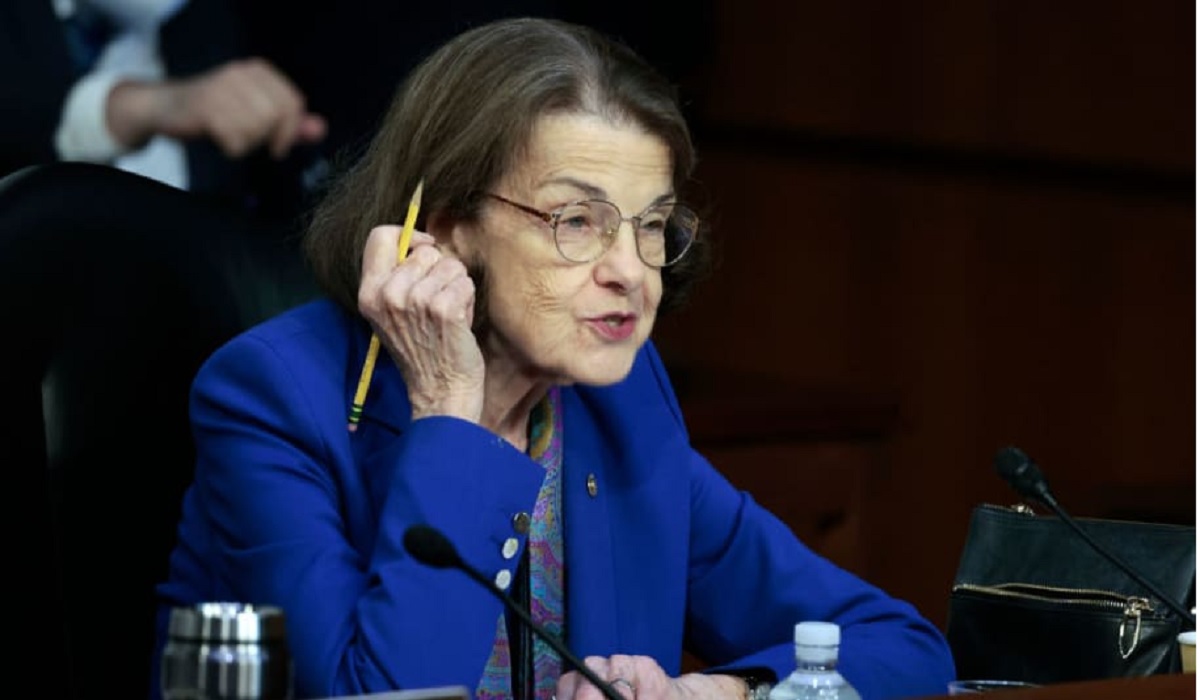In the world of American politics, Sen. Dianne Feinstein was a trailblazer who left an indelible mark on the nation. She passed away at the age of 90, leaving behind a legacy that will be remembered for generations to come.
Who was Dianne Feinstein?
Feinstein, a centrist Democrat from California, was elected to the Senate in 1992. Throughout her long career in local and national politics, she broke gender barriers and championed liberal causes that were close to her heart.
Cause of death
On Thursday night, Feinstein peacefully passed away at her home in Washington, D.C., as her office announced on Friday. The news of her passing led to an outpouring of tributes from across the political spectrum.
Majority Leader Chuck Schumer, while opening the Senate floor, paid tribute to her as a giant in the Senate. He acknowledged her tremendous impact on the nation and the glass ceilings she shattered during her career.
President Joe Biden, who served alongside Feinstein in the Senate, described her as a pioneering American and a true trailblazer. He also referred to her as a cherished friend.
Sen. Dianne Feinstein: A Pioneer’s Journey
Feinstein’s passing has prompted California Gov. Gavin Newsom to appoint a temporary replacement. It is expected that there will be a spirited battle to succeed her, given her influential role in American politics.
Feinstein was not only the oldest sitting U.S. senator but also a passionate advocate for liberal priorities. Her advocacy included environmental protection, reproductive rights, and gun control. However, she was also known for her pragmatic approach, often reaching across the aisle to find common ground with Republicans.
Earlier this year, Feinstein faced health challenges when a bout of shingles sidelined her for more than two months. Her absence led to some frustration among her most liberal critics and an attempt by Democrats to temporarily replace her on the Senate Judiciary Committee. When she returned to the Senate in May, she was frail and relied on a wheelchair, participating in votes only occasionally.
On a somber Friday, Feinstein’s Senate desk was draped in black, and adorned with white roses. Senators paid tearful tributes, and members of the California House delegation stood in the back of the chamber. Former House Speaker Nancy Pelosi joined Feinstein’s daughter, Katherine, in the gallery.
Even Senate Republican Leader Mitch McConnell, a member of the opposing party, considered Feinstein a friend and praised her as a trailblazer. He acknowledged her dogged advocacy and diligent service.
President Biden lauded Feinstein’s contributions to national security, environmental protection, and civil liberties. He emphasized that her legacy would benefit the country for generations to come.
A Legacy Remembered
Former presidents Barack Obama and Bill Clinton also expressed their admiration for Feinstein’s role as a champion of civil rights, civil liberties, environmental protection, and national security.
Feinstein’s journey in politics began when she was elected to the San Francisco Board of Supervisors in 1969. In 1978, she made history by becoming the first female board president. Her tenure coincided with the tragic events at City Hall when Mayor George Moscone and Supervisor Harvey Milk were fatally shot by Dan White, a disgruntled former supervisor. Feinstein discovered Supervisor Milk’s body during that dark period in San Francisco’s history.
Sen. Dianne Feinstein’s life and career exemplified dedication, leadership, and a commitment to making the world a better place. Her passing marks the end of an era, but her legacy will continue to inspire generations of Americans.

